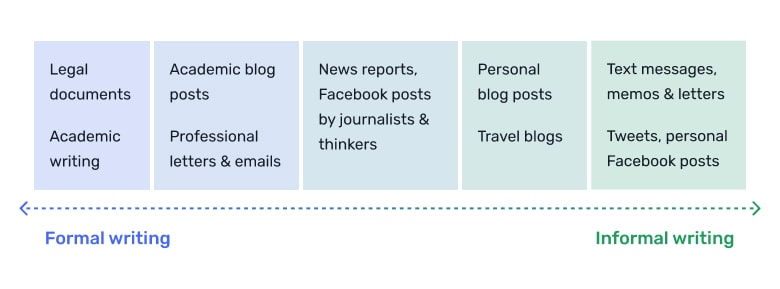Academic Writing Style
Academic writing is a fundamental aspect of higher education and research that requires students to effectively communicate their ideas and arguments while showcasing their knowledge and expertise on a particular topic.
With the growing demand for high-quality academic writing, it is crucial to refine and cultivate the necessary skills required for success in this field. Whether you are a beginner or have a bunch of papers on your record, let’s dive in and examine the top skills that are critical in academic writing.
| Writing clarity and coherence | This is an essential skill that enables students to communicate their ideas and arguments concisely and effectively. |
|---|---|
| Critical thinking | Allows for assessing information and forming independent opinions based on evidence. |
| Research skills | Enable students to find relevant and credible sources to support their arguments. |
| Attention to detail | Ensures the technical aspects of writing, such as proper citation and referencing, are correct. |
| Time management | Essential to balance writing tasks with other responsibilities and meet deadlines. |
| A distinctive and consistent writing style | Helps students convey their unique voice and perspective, while good interpersonal skills facilitate effective collaboration and feedback. |
| Adaptability | Necessary for students to adjust to changing writing demands and styles. |
| Organization | Ensures ideas are presented logically and coherently. |
| Independence | Allows taking the initiative and making decisions. |
| Curiosity | Enables students to explore new ideas and perspectives. |
8 Ways to Improve Your Writing Skills
Easier said than done, right? Well, enhancing one’s writing skills and style is a matter of time and dedication. However, some tips have proven effective and are must-to-follow for every beginner. Check them below.
Tip 1: Utilize ACTIVE VOICE
Active voice is more direct and engaging than passive voice. In active voice, the subject of the sentence performs the action, while in passive voice, the subject is acted upon. Active voice emphasizes the doer of the action, making it more clear and concise. For example:
Passive: The experiment was conducted by the researchers.
Active: The researchers conducted the experiment.
Tip 2: Vary your PUNCTUATION
Using different punctuation marks can help to clarify your writing and make it more interesting. For example, a semi-colon can be used to join two related clauses, while a colon can be used to introduce a list or explanation. A dash can be used to emphasize a point or to set off a phrase. Here’s an example:
“I enjoy many outdoor activities: hiking, biking, and skiing; however, I am not a fan of camping.”
Tip 3: Diversify your SENTENCE STRUCTURE
Using a variety of sentence structures can help to keep your writing interesting and engaging. You can use simple, compound, and complex sentences to create a rhythm in your writing. For example:
Simple: The dog barked.
Compound: The dog barked and the cat meowed.
Complex: While the dog barked, the cat meowed.
Tip 4: Avoid CHOPPINESS
Choppy writing can make your ideas difficult to follow. To avoid choppiness, connect related ideas into cohesive sentences. One way to do this is by using transitional words and phrases like “however,” “in addition,” or “therefore.” For example:
Choppy: The data shows that the experiment was successful. The conclusion can be drawn that our hypothesis was correct.
Smooth: The data shows that the experiment was successful, and the conclusion can be drawn that our hypothesis was correct.
Tip 5: Eliminate REPETITION
Repeating the same word or phrase can be distracting and make your writing seem unpolished. Try to use synonyms or rephrase sentences to avoid repetition. For example:
Repetitive: The results of the study were interesting. The study was interesting because of the results.
Improved: The results of the study were intriguing. They caught our attention because of their significance.
Tip 6: Be CONCISE
In academic writing, it’s important to be clear and to the point. Eliminate unnecessary words and phrases to make your writing more concise. For example:
Wordy: The experiment was conducted in order to determine whether or not the hypothesis was correct.
Concise: The experiment determined the hypothesis’s accuracy.
Tip 7: Use the VOCABULARY you know
Using complicated words unnecessarily can make your writing seem pretentious and difficult to read. It’s better to use clear and simple language that you feel confident using. For example:
Complicated: The proclivity of erudition is commensurate with its antithesis of benightedness.
Simple: Learning is associated with not being ignorant.
Tip 8: Maintain a FORMAL tone
In academic writing, it’s important to use a formal tone to convey professionalism and credibility. Avoid using colloquialisms or slang and strive for a professional tone. For example:
Informal: The study was super interesting, and I think it’s pretty cool.
Formal: The study was intriguing, and it presents a fascinating perspective.

By cultivating and refining these skills, writers can become more effective and confident in their writing, leading to recognition and success. So, embrace the challenge of academic writing and master these critical skills to achieve your goals!